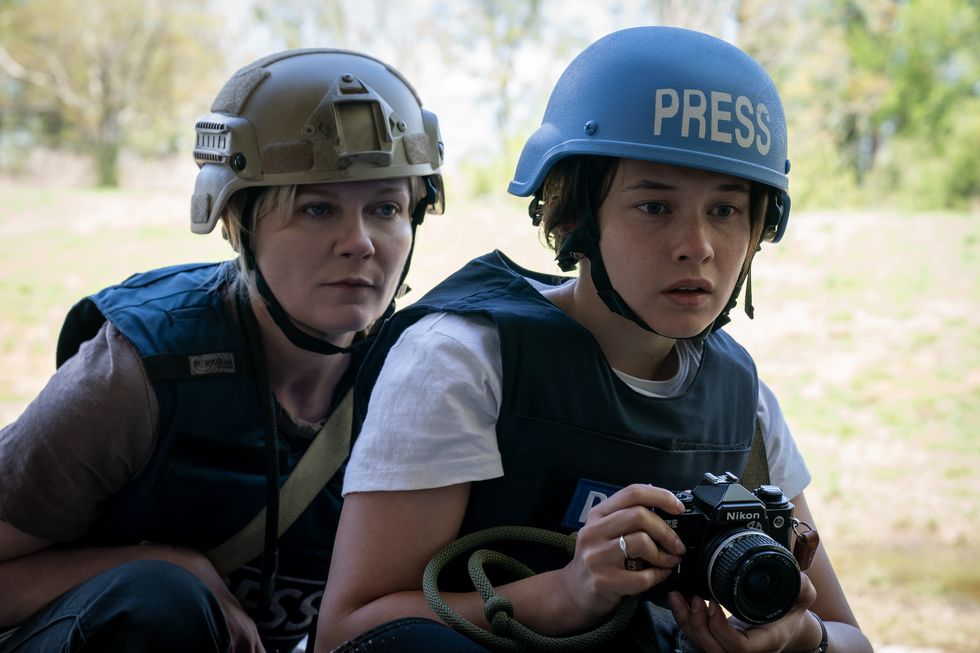20 More Screenwriting Tips from Phoebe Waller-Bridge
Time to take some advice from one of the best in the business.

From Fleabag to Killing Eve to James Bond, Phoebe Waller-Bridge has been writing her way up the ladder in Hollywood since she burst onto the scene.
But the truth is, Waller-Bridge has been honing her craft for years and working on great shows that set her up for the massive success she has today. We've talked about her advice for screenwriting before, but I wanted to return to the fountain of knowledge to gather 20 new tips.
Check out this video from Outstanding Screenplays and let's talk after the jump.
20 More Screenwriting Tips from Phoebe Waller-Bridge
1. Start with writing funny and interesting things that happened in your life and then weave them into a dramatic story.
Find a personal connection to the story, and you'll have an entry point to a character people can identify with on the screen.
2. Disarm the audience with comedy, then punch them in the gut with drama.
Laughing puts the audience in a good mood and can help you subvert expectations for the beats that leave them emotional.
3. Sometimes you have to go looking for inspiration by going far away from what you’re writing.
I always give the advice to think about the complete opposite genre of what you're writing and watch movies or TV from that category. Oftentimes you can steal plot points or beats that fit into your world by getting out of your own head.
4. Create sympathetic antagonists and imperfect heroes.
We should always understand why our characters act a certain way. It doesn't mean we have to root for the bad guy, but it would be nice to see logic woven throughout. Show us flaws we can relate to in the heroes.
5. Teach your characters what you’re trying to teach yourself.
Writing is a form of therapy. Let your characters feel the hard lessons you wish you were smart enough to see.
6. If your writing feels dangerously truthful, you’re going in the right direction.
We want work that shows our souls on display. Give the audience a peek into who you are and see what connects with them.
7. You’re allowed to bore your friends and family, but to bore your audience is unforgivable.
You want the pages to keep turning and people to be truly enveloped in what's going on. That means you need to draw them in and keep them close.
8. Build a lot of humanity within your character if their attitude seems dismissive on the outside.
Why do your characters behave a certain way? Give us tangible reasons through backstory or other techniques that show their behavior is motivated.
9. Surprise the audience in a truthful way.
People have certain expectations around tropes and genres. Is there a way you could shake up their perception by giving them a taste of reality?
10. Material first, jokes first, character first. Structure second.
There are times when all you need to do is just write. Get everything you love onto the page and figure out how it all fits together later. Do the fun stuff.
11. Add as much complexity to your character as you can.
Give your characters a well-rounded persona. We want to know why they act and how they deal with certain situations. Make them confront hard decisions.
12. Create an environment in your writers' room where there is space for failure without embarrassment.
When you're working with others, no idea should be treated as a bad idea. when people feel the freedom to flow, they will. And they'll embrace that environment to get the best foot forward.
13. Take the audience on a journey.
You're an entertainer, you're taking people for a ride in something you created. You want them to feel the bumps, twists, turns, and emotions on every page.
14. Leave it open for interpretation, even if you have your own idea of what a certain element in your story means or symbolizes.
Let people react in their own ways to your work. There does not have to be a definitive answer about certain beats or characters. It's much better to let the audience decide what it means to them.
15. Write a relatable protagonist with whom audiences can identify, no matter who they are.
You want your audience to see a piece of themselves in the protagonist. Who are they and what are they feeling that's universal? What makes them interesting or a reflection of their world?
16. Drama and comedy are intrinsically linked. The trick is to find the right balance between the two.
We laugh at funerals and cry when we're happy sometimes. Humans are complex, and your characters should reflect that. Find a balance in your writing that makes the world feel real and grounded.
17. Relate deeply to the character.
Do you see yourself in the character? Do you see someone you know? You need to know and analyze each person in your script. You should be able to predict or understand their moves.
18. Your protagonist doesn’t have to be chasing after something. They can be running away from something.
Motivation is the key to all characters. What's making them run? What happened to them? How far are they along on their retreat? What could get in their way that makes them face their fears?
19. Don't ask the audience to like the character, invite them to try and understand the character.
Liking a character is overrated. Give us someone who begs us to watch, judge, and care about them when we relate to the good and bad parts of them. Above all else, make them interesting.
20. Whenever you get stuck on something, ask yourself, "What would you do and write if you weren't afraid?"
Write something scary to you, something so personal that if you share it, you feel naked. It's the only way to really stand out from the crowd and to make people pay attention. It's not easy, but it demands to be done.
Source: Outstanding Screenplays
















